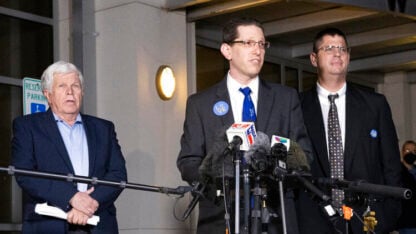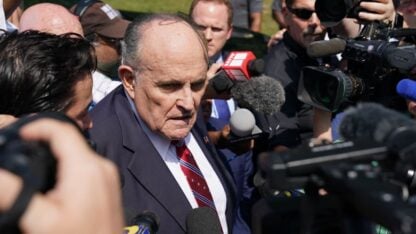Georgia election officials could soon remove more than 300,000 names of registrants who haven’t participated in elections for several years from the state’s voting rolls.
Unlike past cancellations, voters will now receive a notice before being removed under a new state law, The Atlanta Journal-Constitution reported.
Georgia Elections Director Chris Harvey said notifications will be mailed to the last known address of inactive voters in early November. Voters will have 30 days to respond or their registration will be canceled.
The mass cancellation effort comes nearly a year after voting rights became a major issue in the governor’s race between Democrat Stacey Abrams and Republican Brian Kemp, who won by 1.4 percentage points. It also highlights the state’s burgeoning role as a 2020 battleground with two U.S. Senate seats up for grabs.
The cancellations are part of list maintenance that helps safeguard against fraud, Harvey said.
“Accurate voters lists also allow county election offices to plan for polling place equipment and staffing needs. Accurate voter lists reduce the opportunities for mistakes or fraud,” Harvey said, according to the newspaper.
But opponents say the cancellations risk disenfranchising voters who haven’t cast ballots in recent elections but might do so in the 2020 presidential election.
Fair Fight Action, a group founded by Abrams that is suing the state over its handling of elections, said on Twitter: “Voters should not lose their right to vote simply because they have decided not to express that right in recent elections. Anytime a voter purge is conducted, errors can be made, including active voters being wrongly included on the list.”
Georgia has removed more than 1.4 million people from the voting rolls since 2012. Some have moved or died, while others have had their registrations canceled for choosing not to vote in several election cycles.









